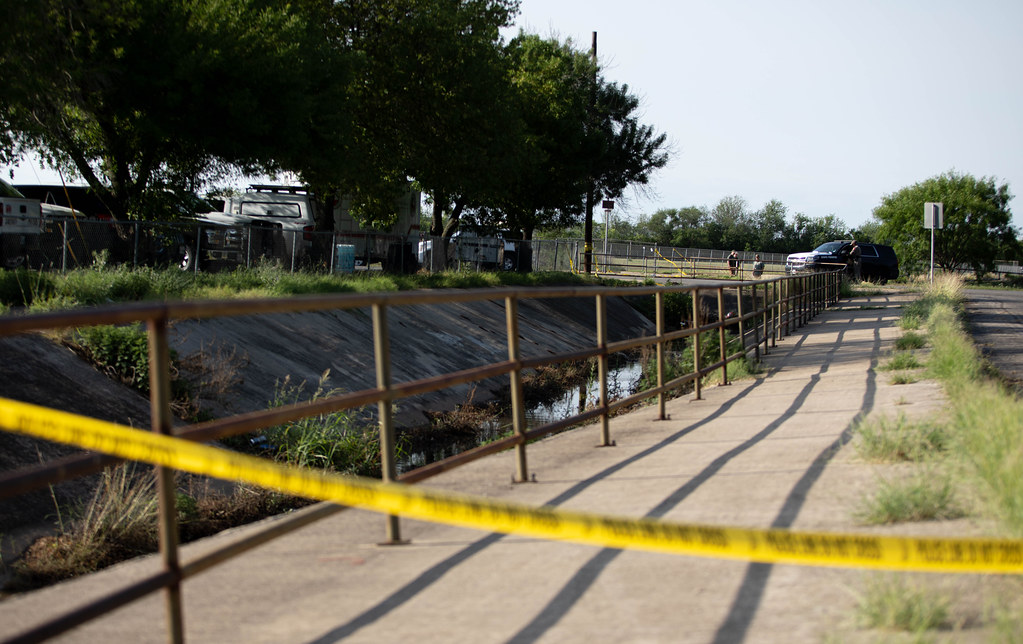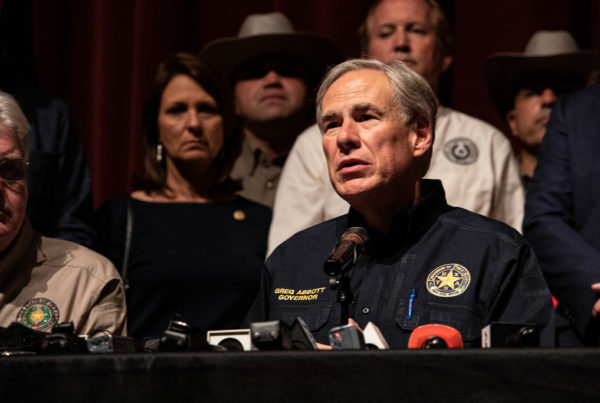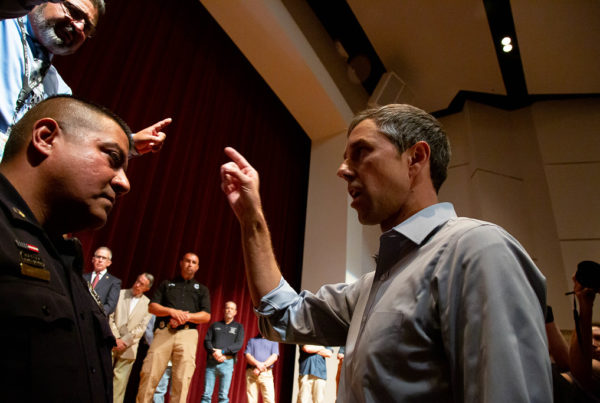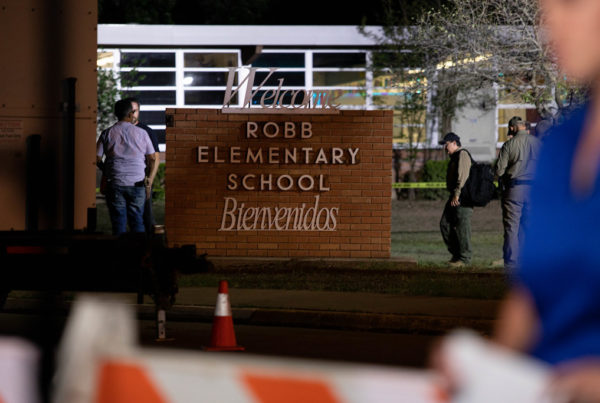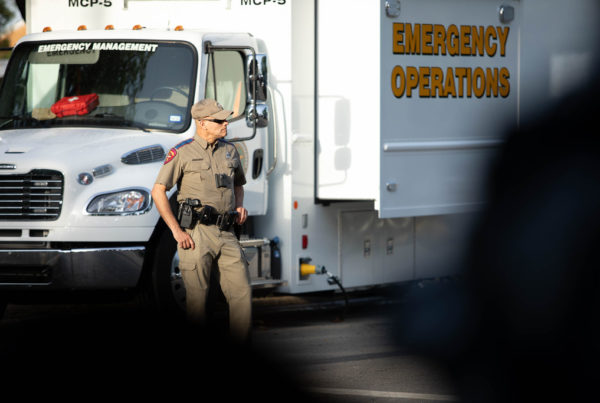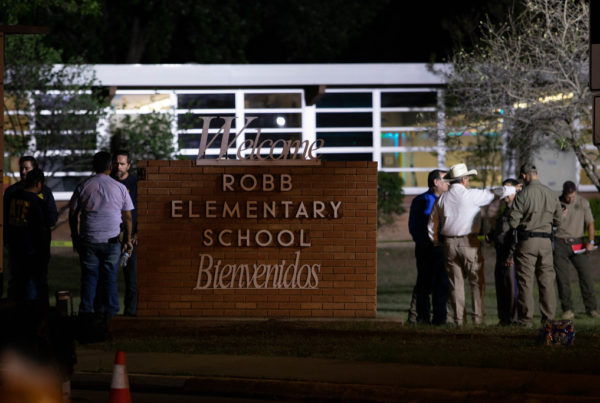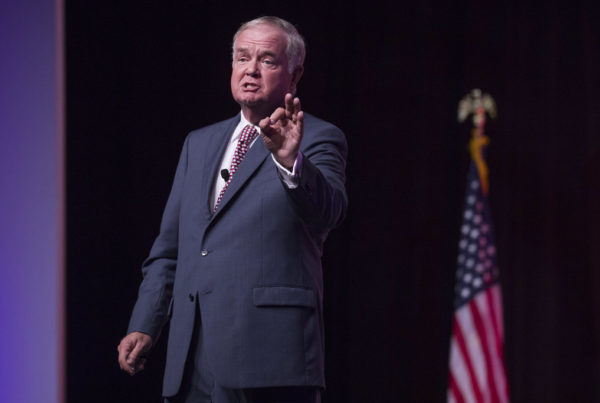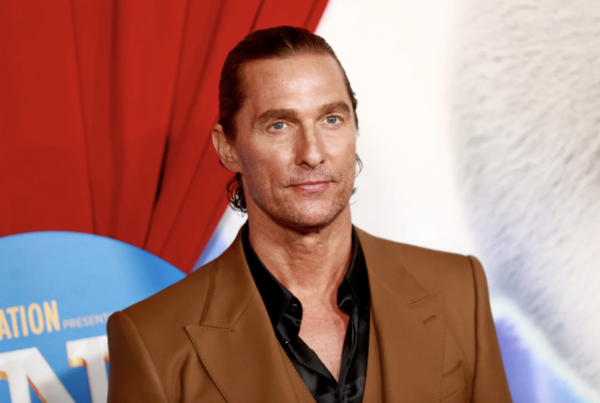For people like social psychologist Kristin Anderson who have spent much of their careers investigating mass shootings, even the early reporting out of Uvalde seems familiar.
Anderson is a professor of psychology at the University of Houston-Downtown. She’s also the author of “Enraged, Rattled, and Wronged: Entitlement’s Response to Social Progress.” Anderson spoke with the Texas Standard about the young male profile of mass shooters, bullying and domestic violence, why media coverage of mass shootings matters, and about the culture of guns in the United States.
Listen to this interview in the player above or read the transcript below.
» How to help in Uvalde: Fundraisers and blood drives
This transcript has been edited lightly for clarity.
Texas Standard: What are the questions that people should be asking, from your perspective as a professor of psychology, when it comes to these mass shootings?
Anderson: Well, these mass shootings are nearly always about gender and about guns. So those are the questions I ask. Mass shootings are nearly exclusively committed by boys and men, especially school shootings. And we have a real problem with how we teach our boys to deal with complicated emotions. We teach boys and men to feel entitled to certain types of honor and respect. And when they don’t feel that they are getting what they need, they lash out in violence. And that’s a gendered phenomenon. And when you pair that with the United States’ fascination with guns, you have a really toxic set of scenarios.
There’s so little known about what actually happened yesterday, much less about the shooter himself. How “honor and respect” in this instance?
School shootings tend to be committed by people who have, again, boys, or then men, who have been bullied and where there’s domestic violence in the household. That seems to be the case with this particular shooting. But we have so many shootings that we can pretty confidently make these generalizations. You know, many kids bully and many kids get bullied. And bullying is a problem. We shouldn’t normalize that, either. But it’s only boys and men that feel that their bullying, their difficulties can be solved with violence. Girls and women don’t respond this way.
In recent years, media coverage seems to be deemphasizing the shooter. What do you make of the coverage of incidents like these?
I think the coverage is improving. I think we do see in recent years an emphasis on the lives that were lost – the victims and survivors are profiled. Their names are listed and information about, you know, what they were like, what they cared about, you know, what their hobbies were. And that goes a long way in kind of deemphasizing the notoriety of some of these mass shooters. So I would encourage that trend to continue to take the shine away from the shooter and onto the lives that were lost.
Is that because of concerns about copycats?
Yeah. There are copycat trends after a mass shooting. We see an uptick in similar types of shootings. And I think we’re in that moment right now, right? Because we’ve had mass shootings really close together. But then, especially, you know, if it’s a white supremacist terror attack, we see on websites and message boards, you know, certain notoriety and even heroism associated with some of these shooters. So we want to diminish that impact as well.
You also mentioned the fascination in the U.S. with guns. And I think even people who are gun owners have, for instance, read gun magazines and seen the way that guns are advertised. What can be done about that aspect, that level of what’s happening with gun violence?
Well, I mean, this might sound like kind of a stretch, but this comes down to voting. Guns are political. The NRA and gun manufacturers fund politicians. That’s not some conspiracy theory that liberals come up with. That’s a fact. We can untie that or untether that, but that’s where we are. Politicians are funded. And it’s again, it’s mostly politicians that are Republicans, but not exclusively, by gun manufacturers, by the NRA. That’s political. And that’s why we have so many guns. I mean, we have, you know, as we all know now, we have more guns than we have people in the United States. No other country has this problem. None.


